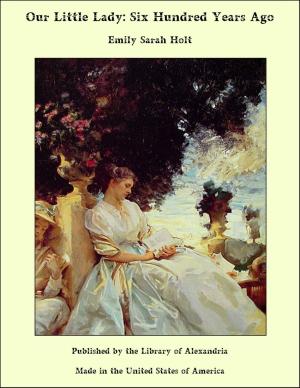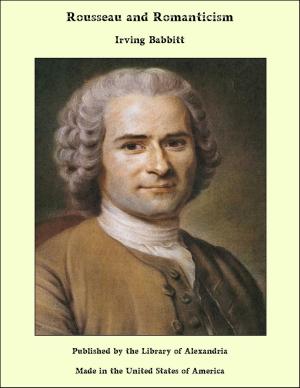| Author: | J. Storer Clouston | ISBN: | 9781465501967 |
| Publisher: | Library of Alexandria | Publication: | March 8, 2015 |
| Imprint: | Language: | English |
| Author: | J. Storer Clouston |
| ISBN: | 9781465501967 |
| Publisher: | Library of Alexandria |
| Publication: | March 8, 2015 |
| Imprint: | |
| Language: | English |
INTO the history of Mr Francis Beveridge, as supplied by the obliging candour of the Baron von Blitzenberg and the notes of Dr Escott, Dr Twiddel and his friend Robert Welsh make a kind of explanatory entry. They most effectually set the ball a-rolling, and so the story starts in a small room looking out on a very uninteresting London street. It was about three o’clock on a November afternoon, that season of fogs and rains and mud, when towns-people long for fresh air and hillsides, and country-folk think wistfully of the warmth and lights of a city, when nobody is satisfied, and everybody has a cold. Outside the window of the room there were a few feet of earth adorned with a low bush or two, a line of railings, a stone-paved street, and on the Other side a long row of uniform yellow brick houses. The apartment itself was a modest chamber, containing a minimum of rented furniture and a flickering gas-stove. By a small caseful of medical treatises and a conspicuous stethoscope, the least experienced could see that it was labelled consulting-room. Dr Twiddel was enjoying one of those moments of repose that occur even in the youngest practitioner’s existence. For the purposes of this narrative he may briefly be described as an amiable-looking young man, with a little bit of fair moustache and still less chin, no practice to speak of, and a considerable quantity of unpaid bills. A man of such features and in such circumstances invites temptation. At the present moment, though his waistcoat was unbuttoned and his feet rested on the mantelpiece, his mind seemed not quite at ease. He looked back upon a number of fortunate events that had not occurred, and forward to various unpleasant things that might occur, and then he took a letter from his pocket and read it abstractedly. “I can’t afford to refuse,” he reflected, lugubriously; “and yet, hang it! I must say I don’t fancy the job.” When metal is molten it can be poured into any vessel; and at that moment a certain deep receptacle stood on the very doorstep
INTO the history of Mr Francis Beveridge, as supplied by the obliging candour of the Baron von Blitzenberg and the notes of Dr Escott, Dr Twiddel and his friend Robert Welsh make a kind of explanatory entry. They most effectually set the ball a-rolling, and so the story starts in a small room looking out on a very uninteresting London street. It was about three o’clock on a November afternoon, that season of fogs and rains and mud, when towns-people long for fresh air and hillsides, and country-folk think wistfully of the warmth and lights of a city, when nobody is satisfied, and everybody has a cold. Outside the window of the room there were a few feet of earth adorned with a low bush or two, a line of railings, a stone-paved street, and on the Other side a long row of uniform yellow brick houses. The apartment itself was a modest chamber, containing a minimum of rented furniture and a flickering gas-stove. By a small caseful of medical treatises and a conspicuous stethoscope, the least experienced could see that it was labelled consulting-room. Dr Twiddel was enjoying one of those moments of repose that occur even in the youngest practitioner’s existence. For the purposes of this narrative he may briefly be described as an amiable-looking young man, with a little bit of fair moustache and still less chin, no practice to speak of, and a considerable quantity of unpaid bills. A man of such features and in such circumstances invites temptation. At the present moment, though his waistcoat was unbuttoned and his feet rested on the mantelpiece, his mind seemed not quite at ease. He looked back upon a number of fortunate events that had not occurred, and forward to various unpleasant things that might occur, and then he took a letter from his pocket and read it abstractedly. “I can’t afford to refuse,” he reflected, lugubriously; “and yet, hang it! I must say I don’t fancy the job.” When metal is molten it can be poured into any vessel; and at that moment a certain deep receptacle stood on the very doorstep















